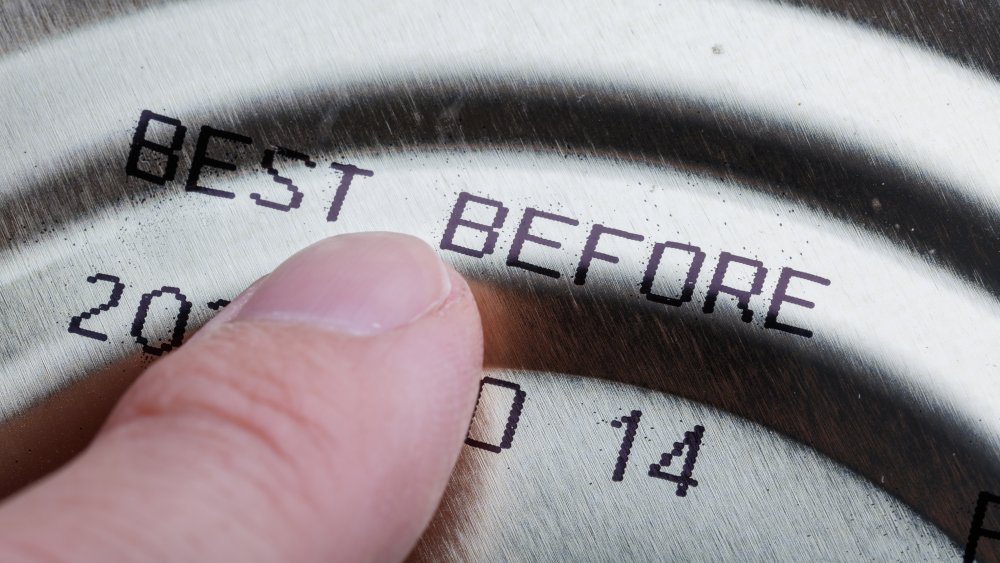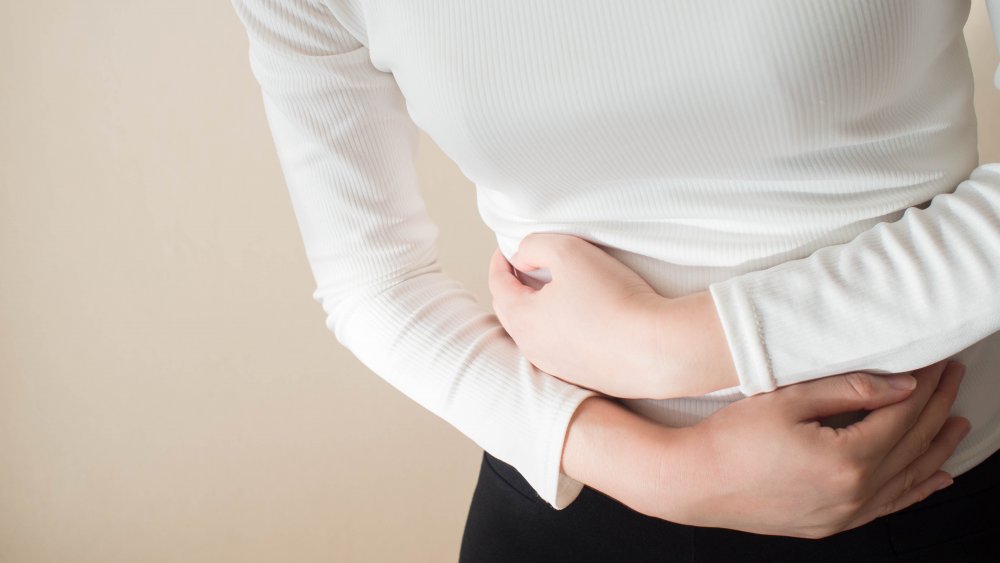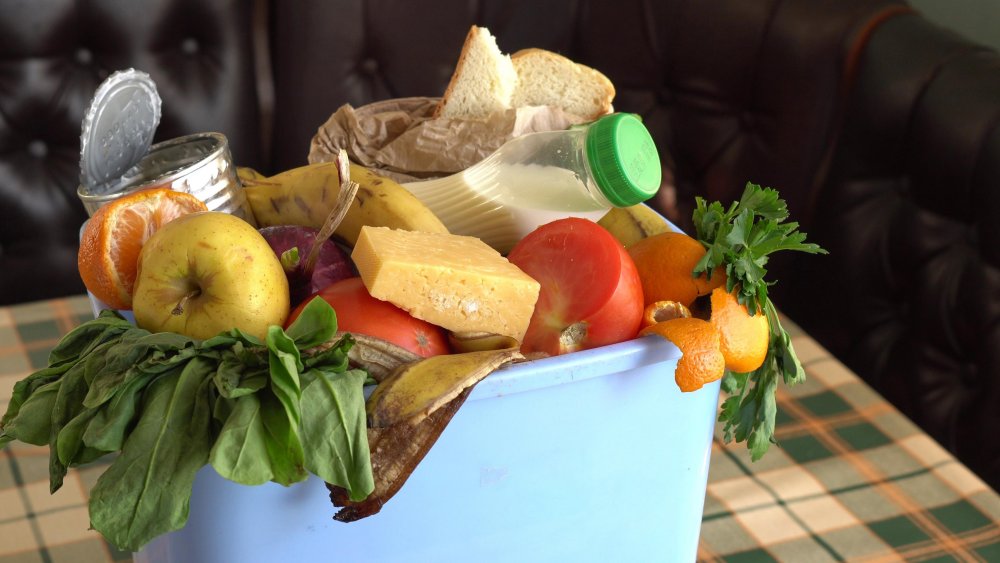This Is What Really Happens When You Eat Expired Food
We've all been there. It's morning and you reach into the refrigerator to grab some eggs to scramble. You notice that the container is past its use-by date, but they look fine. Should you toss them? What about if you grab the milk for a bowl of cereal and notice the carton expired the previous day? Toss it and go without your beloved bowl of Fruity Pebbles, or chance it and hope for the best?
The U.S. Department of Agriculture says the best-by date is a guide — and more about peak quality of flavor — rather than the safety of consuming it, while the use-by date is the last day of peak quality and is only a safety date when used on baby formula. Not very reassuring, right?
Still, the USDA Food Safety & Inspection Service cautions that if food shows any signs of foul smells or the texture looks a little off, this could be part of the natural process of food spoiling and you definitely shouldn't eat it. But what happens if neither of these two characteristics is present and you go ahead and gobble it up? Or what happens if food is starting to rot and you decide to give it a taste anyway? What could really happen if you ate food that is truly expired?
Consequences of eating expired food has a range
Most of the time, you are fine to eat food that has passed its expiration date without incident, especially if food safety protocols for handling and storing food properly have been followed. This means those chips and salsa that are a week past their "best if used by" date are probably just fine to snack on, but don't expect them to have the same crunch and flavor they normally have (via LiveStrong). And while those expired eggs may sound menacing, if they've been refrigerated, experts say they are probably just fine to eat, but suggest cracking the egg open to be sure. If it's discolored or smells, you probably want to throw it out (via Cooking Light).
But expired food, even that has been properly stored, that has developed naturally-occurring bacteria can also play some not-so-fun games with your digestive system if you eat it, resulting in an upset tummy (via Insider). However, Dana Gunders, a senior scientist and lead food waste expert for the Natural Resources Defense Council, told Shape that stomach issues are probably the worst you can expect when consuming food past its expiration date, reassuring readers that even spoiled milk will not give you food poisoning due to its pasteurization. Of course, the "nasty" taste of some expired food could also cause you to gag or even blow chunks, but Gunders said it is otherwise fine.
Yet there is a bigger consequence that comes with expired food and our knee jerk reaction to toss it.
Expired food's negative impact on the environment
It's worth noting experts caution that you should probably skip eating deli meats, unpasteurized foods and drinks, and things that don't require reheating that have passed their used by date for safety issues. But, aside from that, tossing out expired food has its own consequences on your wallet — and the environment. The Washington Post wrote a story about a man who put expired food to the test as part of a year-long experiment to see what are the limitations of the food we buy and eat. He ate months-old yogurt and tortillas that were a year old — and guess what? Nothing happened. He was just fine.
Yet, according to a study published in Waste Management, 84 percent of consumers throw out food when it's closing in on its expiration date. Why should we care? First, throwing food in the garbage is like putting money in the trash. It's not wise for your household's bottom line. However, it also isn't good for the environment. According to Our World in Data, food waste can be blamed for 6 percent of global greenhouse gas emissions.
The USDA suggests using common sense when it comes to whether or not you should eat food that has passed its expiration date or toss it. The agency says that shelf-stable foods like canned goods are safe indefinitely, unless there is rust, dents, or swelling. When you open food packaging, you should be able to discern if it can be consumed.


